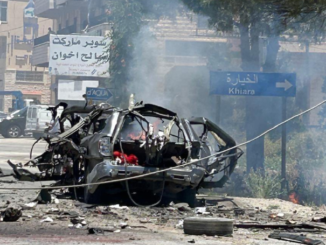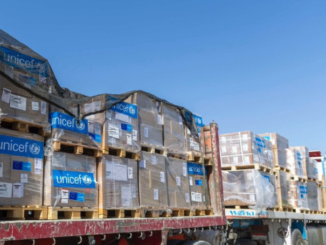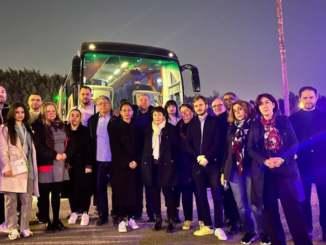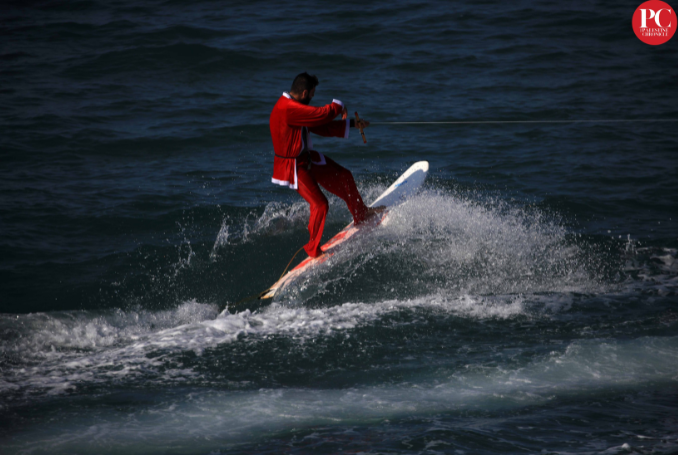
I’m a simple man.
I don’t know all there is to know about history, activism, and international law. I stand on the shoulders of giants present and before me—the likes of Noam Chomsky, Leila Khaled, Ilan Pappe, Ghassan Kanafani.
There are too many to mention here. But they are much greater persons than I can ever be; they’ve done and endured so much for the cause I care for deeply: Palestinian justice.
This is what I’ve been thinking of as we near the end of 2022. And the more I do, the smaller I feel. That is not a complaint. It is a confession. And I think recognizing my smallness will make me a better writer and activist—for Palestinian justice.
I told my friend on a couple of occasions this year – after she, a Palestinian, thanked me for my activism – that I’m but a grain of sand. Nothing. I’m only doing my part, playing my role as a human being, to raise awareness of the injustices endured by Palestine and mobilizing with others, Palestinians and non-Palestinians alike, to ensure that Palestine is finally free.
I believe that capacity is in us all. In that regard, I’m not doing anything remarkable. To fight for Palestine can be done in many ways, whether we are with our Palestinian brothers and sisters in Palestine or abroad, such as myself here in Canada. There’s always something, however large or small, we can do in this effort and always in solidarity with the Palestinian people themselves.
Chomsky has remarked somewhere that he wished he had entered his impressive activism against the Vietnam War earlier than he did. But what prevented that was not in the least to do with a lack of resolve or courage. It was on account rather of being unaware, like countless other Americans, the extent to which Vietnam was being criminally assaulted by the United States.
For some time, I saw this as a conundrum. How, I thought, could someone wish to have acted against something they didn’t know about? Surely it is irrational to feel regret about that.
I realize now it’s not. Through my solidarity work with Palestine and especially while writing for The Palestine Chronicle I believe I’ve come to grasp what Chomsky meant.
It’s not easy to describe in words. I’d venture to say it’s something spiritual, though I doubt Chomsky would use that language being a formidable scientific (on top of philosophical) mind. Likewise, it’s not something I could, as a philosophy instructor teach, say, through delivering a lesson on how to be “rational.”
The aforementioned regret cannot be presented, much less understood, in such a tidy context.
Yes, I did not know the extent to which the Canadian government, for example, was lying about the “two-state solution” and how this is a “viable” option for both Palestinians and Israelis alike to achieve“long-lasting peace.” I did not know, on account of it being wholly absent in my school learning, how badly Israel was oppressing Palestine.
It also didn’t help that often in religious studies class “Israel” was never described in any militaristic or political terms but simply a “holy place.” I had friends who would tell me about their visit there. They made it sound like paradise. That’s because they never saw nor spoke about the plight of Palestinians.
None of this absolves my regret for having not done more for Palestine in my younger years. Remains still is the frustration with the randomness of my life that prevented me from knowing then about Palestine under Israeli oppression. I think Chomsky experienced something like this with respect to what he perceives to be his delayed involvement in anti-Vietnam War efforts. The regret at the heart of it is not a function of our actions or decisions but what the universe ultimately allowed us to, for a time, see or not. One might call it metaphysical regret.
If I could start my life over I’d want it to involve learning about Palestine from the outset. I believe I would’ve entered the struggle for Palestinian justice as a youth had this been the case.
I’m a simple man but I’ve never been afraid to be “political” or—like my nonna taught me and I discussed in a recent article—do the right thing. I fail to see life as having any meaning when we avoid that, including but not limited fighting alongside others, be they Palestinians or not, so as to challenge and overturn oppression in all its forms.
Still, since I graduated with my PhD in philosophy in 2011, I’ve been discouraged by life. Two particular reasons account for that.
First is the sudden death of my beloved mother, Maria, in 2014. Words do not need to describe this pain, nor can they ever do it justice. Most anyone who’s lost a mother I believe would agree.
The second is that I never became the tenured philosophy professor I set out to be. When I was 18, I dedicated myself wholeheartedly to that. But as I know now, a PhD is no guarantee to be a professor in any field. You need a lot more like an impressive record of publications, to have carved out a name for yourself in a particular academic field. I didn’t do that as well as others. I have the humility to accept that. I still struggle emotionally in knowing that this probably disappoints my father. Not because I didn’t work hard to become a tenured philosophy professor but because he wanted, like I wanted, for me to be that. I wish I could’ve made him happier; he’s made more sacrifices for me than I can count. I wish I could erase that disappointment but I must now reckon with the fact that I don’t have the same mettle as greater scholars than I do.
When I think of the constant oppression, violence, abuse—all the criminality endured by the Palestinian people at the hands of Israel—my being discouraged by life suddenly pales. My (privileged) problems come nowhere near to this. Also, the Palestinian people refuse to ever submit to Israeli criminality while rightfully resisting it gives me the courage to be a better person. For me, that’s taken on the form of thinking much less about myself. And thinking a great deal more about Palestinians, including what I’m constantly asking myself: how can I be a more responsible and dedicated ally to them? What am I doing now that’s not helping the Palestinian struggle for justice? How do I stop that and replace it with something constructive that does?
The Palestinian people have turned my gaze outward—away from over-dwelling on the personal dimension of my life and towards injustices that they, like no other group of people, should ever have to experience. And when they do we must, if I can use the phrase, be Palestinian about it.
That means never turning away but, with dignity and resolve, fighting back. The goal here is never to harm but liberate fellow human beings from under the heel of the oppressor or, more concretely, systems of dehumanization. Such systems promote hate where there should be love, divisions where there should be togetherness and violence where there should be a just peace.
Challenging this for me means, in part, making up for the time when I was not proactive in the struggle for Palestinian justice. I will make enemies along the way, namely those who endorse systems of dehumanization. Nevertheless, I will not be blinded to who they ultimately are: human beings woefully wrong in their thought and action. I refuse to be like the Israeli ultranationalist who hates others because they do not agree with the ethnic cleansing of Palestine.
There’s a place for everyone in this world. There’s no place, however, for any system that compromises our shared and precious humanity.
To oppose that is to be pro-Palestinian. That’s what the world needs to become, more fully, in 2023.
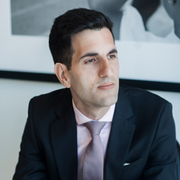
– Paul Salvatori is a Toronto-based journalist, community worker and artist. Much of his work on Palestine involves public education, such as through his recently created interview series, “Palestine in Perspective” (The Dark Room Podcast), where he speaks with writers, scholars and activists. He contributed this article to The Palestine Chronicle.




